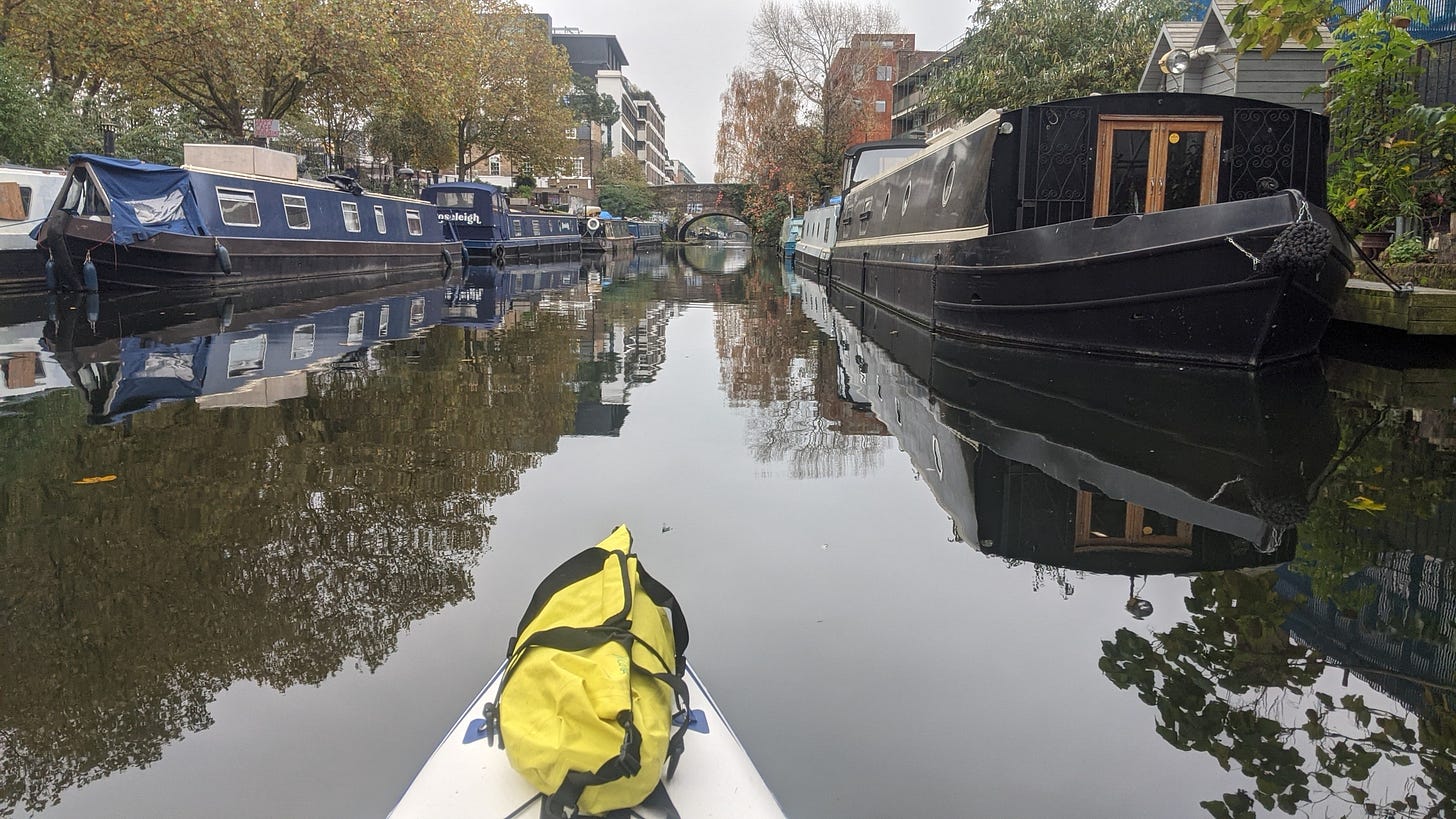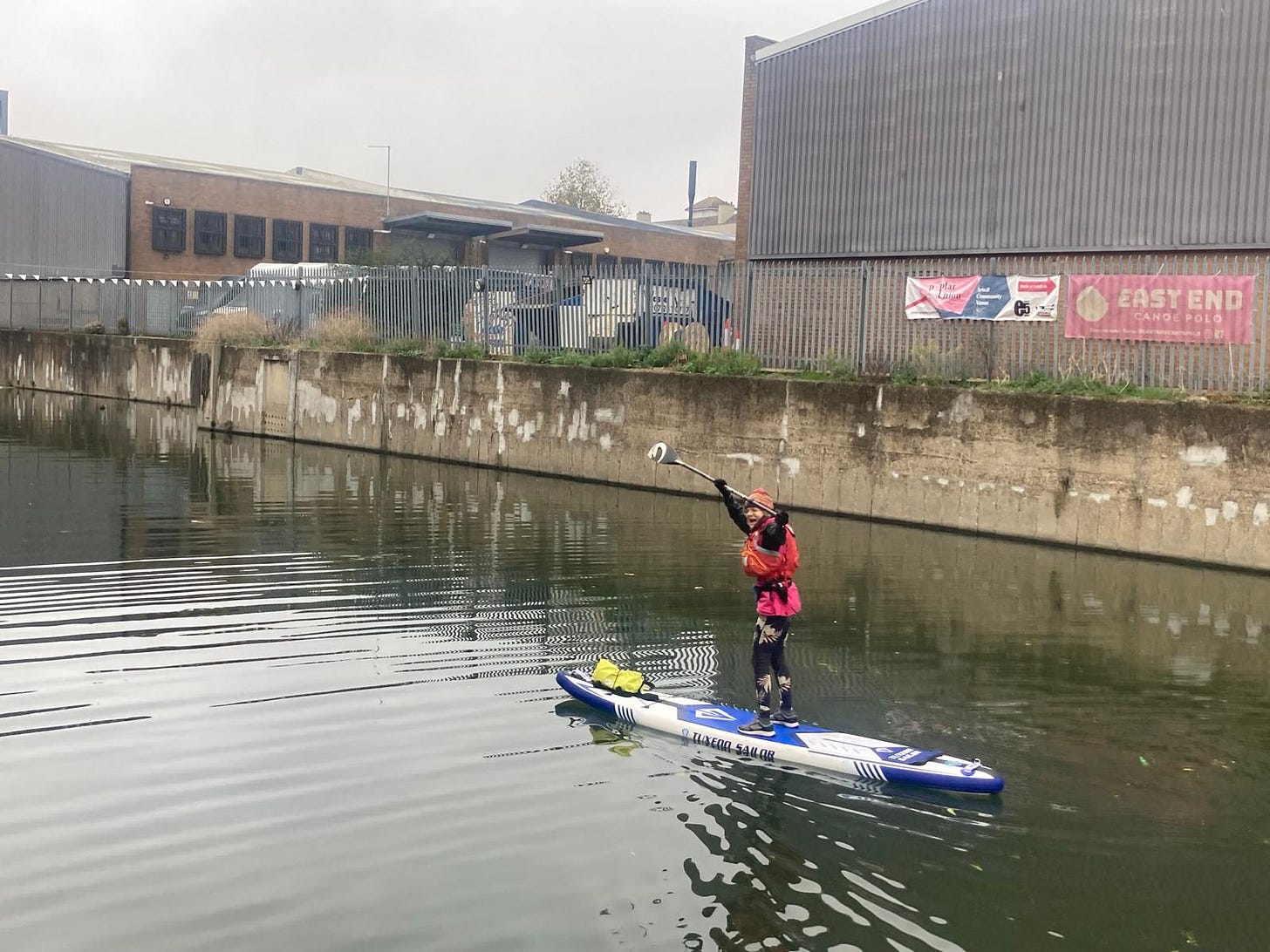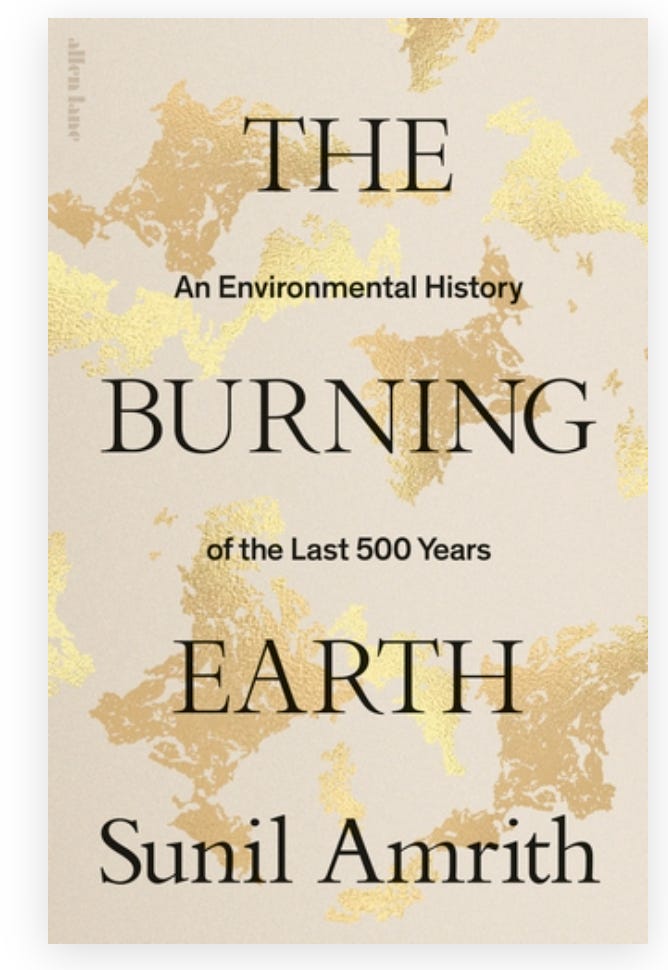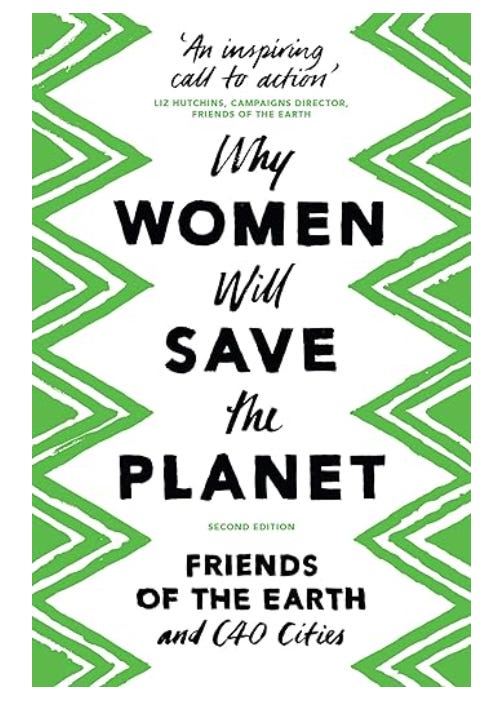Who do you want to paddleboard with?
Even those of you with busy whatsapp groups might enjoy thinking about who else could join your paddleboard posse?
Most of my paddleboarding time I’m trying to keep groups, who don’t know each other too well, paddling near to each other - which is a tricky challenge for newbies. ISpy games keep kids (and the kid in us) going, while history nuggets about my local waterway (Regent’s Canal) keep the curious determinedly paddling into the wind. Jokes, praise and songs help just about everyone stick together. But what keeps a solo paddler going?
There are many answers: from snacks to Strava.
During my most recent scouting of a route along Regent’s Canal and up the Limehouse Cut I came up with a glorious game - imagine your perfect paddleboard companions. In this case I wasn’t thinking of the lovely people I do often join on the water. Instead I borrowed an idea from one novel everyone should probably read, the Five People You Meet in Heaven by Mitch Albom (all about life’s purpose), and the Sunday newspaper’s bizarre standby question “Who would you most like to have dinner with (live or dead)?”
Here’s the result. Would you like to join me and my four special paddleboard guests or have you got a rather different squad? If you click like and pop your answers in the comments we can all play…
1 Sunil Amrith - the thinker
Sunil Amrith, born in Kenya, grew up in Singapore, studied History at uni in the UK and is now a Yale professor making him a proper brainiac. He’s able to focus on health, wealth, justice and carbon, give the mix a shake and create a must read new book called The Burning Earth : an environmental history of the last 500 years. Published by Penguin, in hardback this costs £30. There are also ebook and audio versions.
The planet - resources and animals and all too often poorer people - have had a tough 500 years as humans plunder the Earth for the next big thing. What’s so incredible about his book is that is that it’s not completely a tale of gloom and doom. Honest!
Sunil manages to pull together human’s huge exploitation scramble right across the globe. He spells out the bad, but can still end up with an almost positive epilogue. I read the early chapters in awe, wondering how someone could have such an interdisciplinary depth. And then cheered when the final chapters chart the birth of the environmental movement. At last more people speaking up for the planet.
Elements I loved were the storytelling. Often Sunil zooms in from the big picture (Google Earth style) to tell an anecdote about one person and the changes they made in (and with) their community, although wickedly some of the people who’ve resisted environmental damage in their homelands (including Chico Mendes and Ken Saro-Wiwa) have ended up dead.
Sunil is willing to criticise eco approaches too. He criticises Rachel Carson who wrote Silent Spring warning about the damage DDT was doing to birdlife and humans for her Amero-centric (myopic?) view of the damage (and good) DDT pesticide was doing far beyond her backyard.
He also looks back at big speeches to find new vision. For example he quotes Indian PM, Indira Gandhi, showing how she made clear that environmental protection cannot come at the cost of the poor at a UN meeting in Stockholm back in June 1972, calling it (I’m quoting Sunil here) “a problem of distribution, not of numbers.” And it still is.
Indira’s speech could be seen as the birth of environmental justice on the global stage. I’m not sure how many paddleboard blog readers are aware of the EJ (environmental justice) trend, but it is ultimately about respecting community voices and what’s led to the 2024 climate COP 29 meeting in Baku, Azerbaijan working on climate finance.
I also liked seeing diagrammatic maps (shout out to geography fans) in the book and the authoritative new way of talking about the planet as a place, not solely a resource, but which isn’t via a UK (or Western/global northern) centred lens, nor entirely human-centred.
Just imagine Sunil’s chat on the water. He’d be admiring the coots running on water and then using this as an example of a light-footed manouevre to solve a problem caused by humans’ relentless destruction of the actual planet we all depend on... Then as we slow down he’d no doubt share something tasty to get our paddling energy back again, artlessly demonstrating how you cannot move forward to a low carbon world without socio-economic progress for the most vulnerable (in this case a snack).
The Burning Earth gets us up to speed on sticking points and insists you take a global perspecitive. By the end of it you’ll feel different.
If you’re interested in how communities are getting involved in low carbon economies in the UK see https://ashden.org/
The Burning Earth, an environmental history of the last 500 years by Sunil Amrith (Penguin, 2024, £30)
2 Christiana Figueres - the mover and shaker
She’s my total living hero. I interviewed her over the phone in 2017 for a book I was editing for Friends of the Earth and C40 Cities called Why Women Will Save the Planet. Many of the contributors had great ideas, but Christiana by that stage had already helped push the Earth’s leaders at the Paris climate COP 2015 towards making major changes cutting carbon and agreement to set a 1.5C target to stop the planet heating any more.
Most weeks I listen to her podcast Optimism and Outrage, usually while I’m also doing pilates in a bid to paddleboard better. I’d definitely want to find out how she keeps her positive optimism alive. And I’d like to give back a bit to Christiana too by sharing those moments when the Canada geese fly low over paddleboarders, which jettisons you into the moment then leaves you with an amazing memory of beating wings as nature does yet another wonderful thing (in this case fly!). Paddleboarding on a London canal may not be saving the world, but it is a big reminder to care.
3 Lizzie Carr - the litterpicker
Lucky me, I have actually paddleboarded with Lizzie and some of her Planet Patrol team. Planet Patrol gets community volunteers litter picking - I’ve done this on the River Lee and the Regent’s Canal. Her enthusiasm for cleaning up the mess we’ve got our rivers into is amazing, but now I want to hear more about her updated plans. What better way to find out about the future for litter picking logging than by paddling with the founder of Planet Patrol?
4 Dave Price - the witty writer
The author of the Paddleboard Bible - a huge bestseller during covid when everyone was buying their boards - kindly gave me an email reassurance back in 2023 when I wanted to find out whether paddleboarders were on balance good or bad for the river and its wildlife. His answer was that it was a definite good.
I still haven’t paddleboarded with Dave, but we have a plan to go on the Basingstoke Canal this winter, hopefully with another paddleboard friend, Will, from Inclusive Paddleboarding. The Paddleboard Bible is full of silly puns which I love and I can’t wait to enjoy Dave’s banter after we’ve had a good look at some very special wildlife.
5 And who else?
Well it would be better if our group was an even number so we can chat in twos on the narrow canal. I’d also love to include someone to get us all singing. Or a birder. Or an environmental guardian. Maybe a childless cat lady like Taylor Swift? Whoever it is they can’t be too rocky on a paddleboard.
And finally
In my dreams (remember this is all imaginary anyway) we’d stop for a hot drink on a narrow boat and probably at the end of the session keep the words flowing at a pub…
So if you see me on the water chatting to myself please interrupt. I’ll either introduce you to my imaginary paddle friends or (much more likely) just be very grateful to chat with you.
I've written a novel (a funny one) about paddleboarding and litterpicking on canals. It's called NOT THAT DEEP and is available as a £10 paperback or £3 ebook via https://amzn.to/3UMaoxT It would be lovely if more people knew about it/read it especially anyone keen to remove litter/sewage... Happy paddling. PS and if you have read it, all reviews very welcome!






